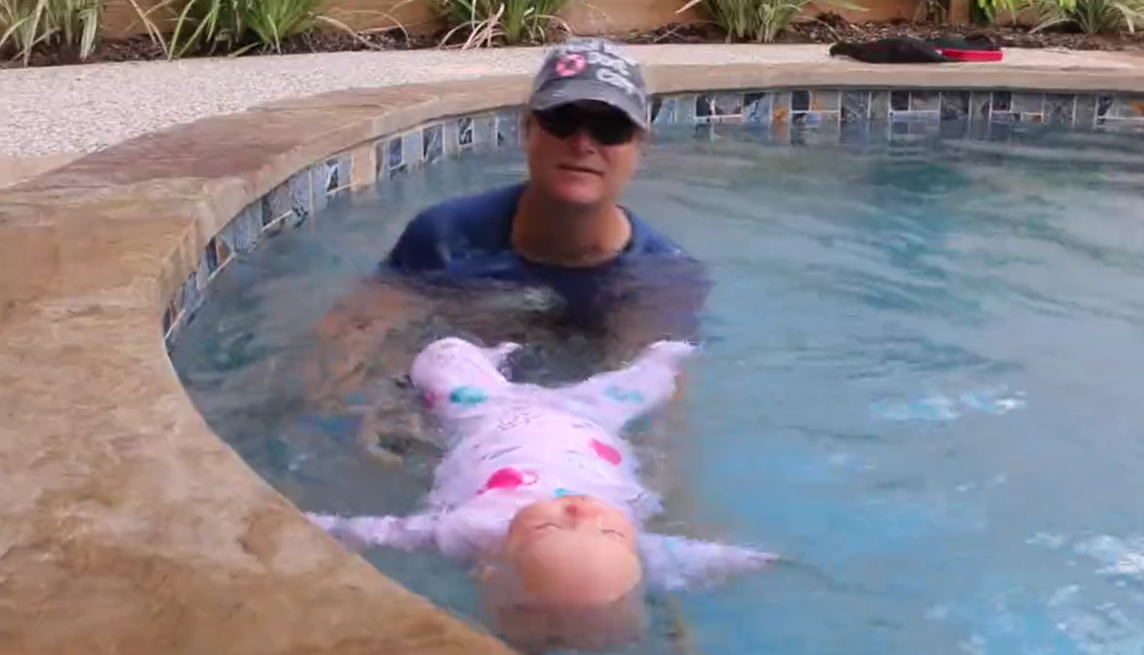
Do you now have a baby? Or, is this your second or third? It doesn’t really matter how many you may have had. Being a mother, you are now likely thinking about giving your baby swimming lessons. That is really a wise thing to do.
Scary Drowning Stats
Drowning accounts for a huge number of accidental deaths every year. Nearly 3,500 people die every year in the United States from accidentally drowning . That is 10 per day! Children under 14 years of age account for approximately 20% of them. And, did you know that drowning is the number 1 reason that children that are 4 years old and younger accidentally die? These are frightening statistics for parents.
So, why not give your babies swimming lessons? Nowadays, children who are at least 6 months old are given swim lessons. Children who are 6 months old will surprise you with what they can learn. Especially when they are being taught by a skilled swim instructor who has been trained in teaching these skills.
Helpful Bits of Information
If you have decided to give your baby swimming lessons, here are a few things to help the new experience goes well for you and the baby:
- Stay Calm – This is a new experience for you and the baby, so stay calm! Your baby is going to react in a number of different ways, each time a lesson is given. Sometimes, they will giggle, laugh, and jump around in the water. At other times, they may whine, cry, and throw a fit. Just stay calm, the skilled instructor will know how to handle it.
- Don’t Eat Within One Hour – It is an old rule, but still has a lot of validity. Eating within one hour of the lesson may cause your child’s stomach to get upset.
- Start from Home – If you haven’t already done it, get your child use to going into pools of water by using your tub at home. If you don’t have a tub at home, try using a small plastic pool outside. Gently lay them on their back on top of the water. Pour water over their head. Give them some practice with this type of activity.
- Arrive 15 Minutes Early – Get your baby to their swim class a bit early. This will calm them down before they start their lessons. Surprisingly, this makes a huge difference.
- Keep Safety as the Primary Goal – Teaching your child to swim, exercise, and have fun is always nice. Keeping safety in mind, though, should be your foremost thought. Make sure your child is in sight and within arm’s reach of you or the instructor at all times.
- Know When to End the Lessons or Take a Break – Don’t push your child too hard. Yes, to begin with you may have to be a bit pushy to get them started with their swimming lessons. But, don’t push them too hard. Never force them to learn a new skill. If the child becomes upset or uncomfortable, have them get out of the water and take a short break. It’s hard, but try to figure out when it’ best to end the immediate lessen. Your trained instructor will help with this.
- Bring a Change of Dry Clothes – Always bring dry clothes to change your wet baby into after their lessons. It will be comforting and healthy for the baby.
Life Saver Survival Swim School – Our Specialty is Baby Swimming Lessons
Our instructors have been trained to teach all ages of children to float and swim. Our specialty, however, is teaching baby swimming lessons. We have been doing this for nearly 20 years, now. Teaching infants and children to swim is very important to us. We are located in The Woodlands, Montgomery, and surrounding areas in Houston, Texas.
If your family has infants and/or children that need to learn to float and swim, you can give our owner, Bonnie, a telephone call. Her telephone number is (832) 366-3008. Or, you can email her by using this link.

